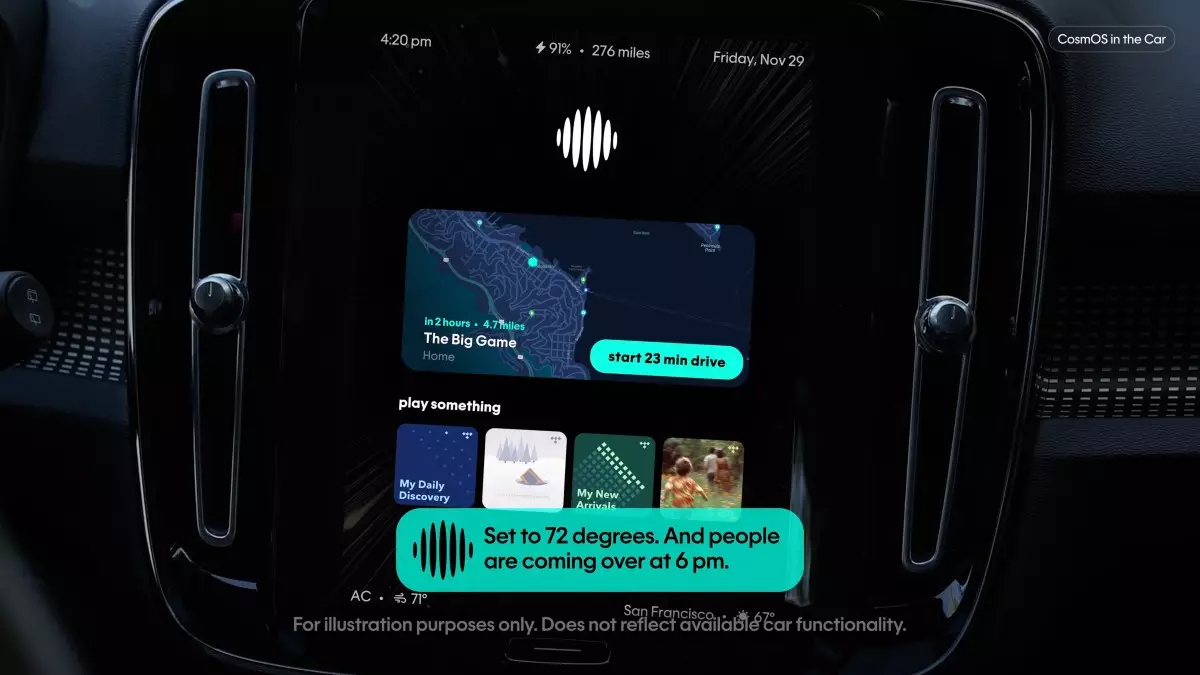The tech landscape is one of constant evolution, teeming with innovations that promise to redefine our interaction with devices. One such entrant is Humane, a San Francisco-based company whose recent introduction of the Ai Pin was poised to change the way we view personal technology. However, their experiences thus far serve as a sobering reminder that even well-conceived ideas can falter in the marketplace.
Initially, the Ai Pin was touted as a revolutionary gadget designed to complement the ubiquitous smartphone. The aim was clear: to create a dedicated artificial intelligence device that users could carry, offering functionalities that extend beyond the limitations of their smartphones. Despite this ambitious vision, the reality presented a stark contrast. Reports emerged indicating that sales were uninspiring and, at times, returns surpassed unit sales. This troubling trend culminated in a price reduction from $700 to $500, a move that raises questions about the device’s viability in a competitive market.
With over $230 million in funding, one might assume that Humane is in a stable position to weather these financial setbacks. Yet, as consumer interest wanes, the company now faces the daunting task of pivoting its strategy to engage a disillusioned audience. The release of CosmOS represents the latest effort in this rebranding initiative, but it also highlights a critical gap in aligning visionary concepts with tangible user benefits.
The introduction of CosmOS brings with it a promise of interconnectedness across various devices in our lives. The operating system was showcased in a sleek promotional video, demonstrating its capabilities on smart appliances such as cars, speakers, TVs, and smartphones. However, while the demo provides a tantalizing glimpse into the potential applications of this technology, it raises skepticism as to whether these capabilities are rooted in feasible product functionalities or simply idealistic aspirations.
Humane boldly claims that CosmOS acts as an “intelligent conductor,” seamlessly orchestrating the capabilities of various AI models and services. This vision leans heavily into a future where voice assistants transcend their current limitations, progressing toward a more intuitive understanding of user needs. This parallels trends noted in existing platforms like Amazon’s Alexa and Google Assistant, yet it begs the question: can CosmOS truly deliver on its ambitious promises, or will it be just another instance of tech hype?
The promotional video included scenarios such as querying the assistant for takeout recommendations and checking for sports scores based on contextual awareness. While these examples showcase an exciting leap in user experience, they also reveal a reliance on theoretical use cases. The blurring out of logos and functionalities within the demo signals an attempt to elude regulatory scrutiny while simultaneously keeping viewers guessing about actual capabilities.
The incorporation of smartphone integration—where CosmOS could engage with your calendar and on-screen applications—raises further concerns regarding user privacy and data management. As digital assistants evolve, so too must considerations around security protocols and ethical data usage. There is a fine line between convenience and invasion of privacy, a line that companies must navigate to ensure user trust.
As Humane embarks on this new journey with CosmOS, it faces an uphill battle to win consumer confidence, especially after the lukewarm reception of the Ai Pin. The allure of a user-friendly AI that enhances daily life remains strong, but it requires a foundation built on functional realities and user-centric designs. While funding is an asset, it is the creation of a dependable product that will determine the company’s success.
Humane’s ambition is commendable, but realizations of these dreams will only materialize through concrete developments and transparent practices. As the tech community watches closely, the future of CosmOS will depend not just on its visionary traits but also on its ability to address practical concerns in a marketplace that is both relentlessly competitive and increasingly discerning.

